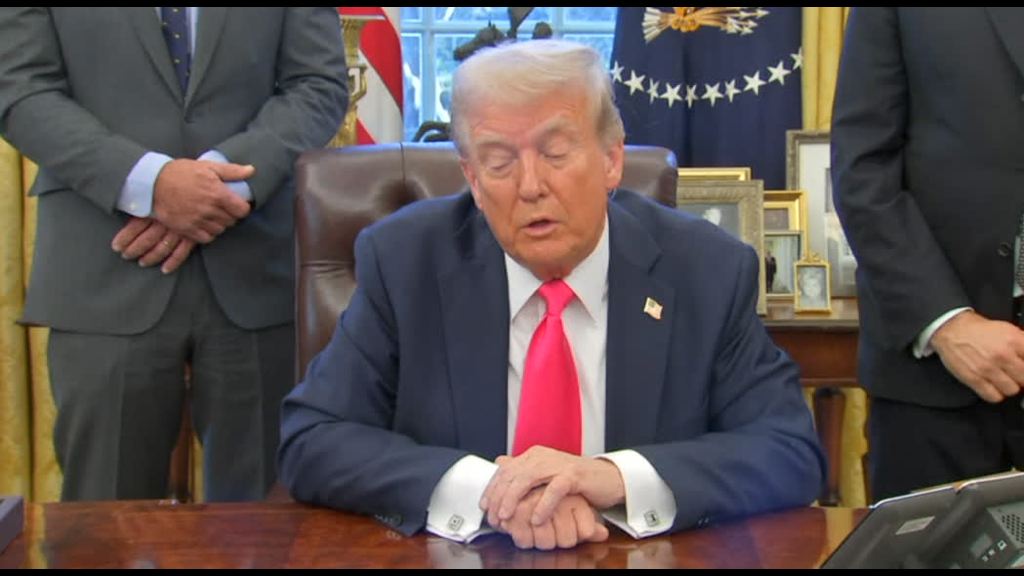President Donald Trump intimated that President Volodymyr Zelensky will be in Washington this week, possibly on Friday, to sign an agreement with the United States on Ukrainian rare earth minerals.
Trump’s White House has aligned itself with Russia’s Vladimir Putin, to such an extent that it did not vote at the UN two days ago on a resolution condemning the three-year anniversary of Russia’s invasion of Ukraine. It is hoped that the minerals agreement will pave the way for greater cooperation between Kyiv and the U.S., the country that was once its biggest ally, but a number of factors remain unresolved.
The news of the agreement has been partially confirmed to the BBC by Yuri Sak, Advisor to the Minister of Strategic Industries of Ukraine. Speaking on BBC Radio 4’s Today program, Sak said that the idea for a minerals agreement actually originated with Ukraine: “We had included it in our victory plan presented by our president to the United States and other partners in 2024.”
When asked about the shift to a primarily business-oriented relationship between the United States and Ukraine, Sak stated: “We remain pragmatic. We will soon get used to the very unusual nature of this negotiation process.” Indeed, the president has drawn hard lines in domestic political negotiations as well, threatening federal funds to states that do not go along with his policies on a variety of issues. “At the same time, we are not a nation of freeloaders; we understand that this war has been going on for three years, and it’s time to move to a slightly different narrative,” Sak added.
One of the main criticisms Trump’s White House has about the Ukrainian presidency is the amount of money and weapons sent by the United States (and Europe) to Kyiv to resist the Russian invasion.
However, it remains uncertain what exactly will be included in this agreement and under what conditions Ukraine might sign a peace deal.
According to recent reports, a revised version of the document removed a U.S. request to obtain $500 billion in potential revenue from access to Ukrainian natural resources as “reimbursement” for the money spent by the Biden administration in defending Ukraine over the years. Nevertheless, the agreement still does not provide the concrete security guarantees requested by war-torn Ukraine.
Previous drafts of the agreement, reviewed by The New York Times, did not include any commitments in this regard. A final translated draft of the agreement was sent to Ukraine on Tuesday, according to an American official. Treasury Secretary Scott Bessent and his Ukrainian counterpart are expected to sign the agreement first, after which Zelensky is set to travel to Washington to sign it with Trump in a public ceremony.
Trump’s diplomacy is now openly based on a commercial approach. The White House aims to extract maximum value from both Kyiv and Moscow by acting as a mediator.
Rare earth minerals play an increasingly strategic role in global affairs, as they are crucial for renewable energy, military applications, and industrial infrastructure. Kyiv estimates that about 5% of the world’s “critical raw materials” are located in Ukraine (although many are in territories currently controlled by Russia). The United States is interested in an agreement on these resources to reduce its dependence on China, which controls up to three-quarters of the world’s rare earth deposits. In December, China banned the export of certain rare minerals to the U.S., and had already restricted mineral exports the previous year.












